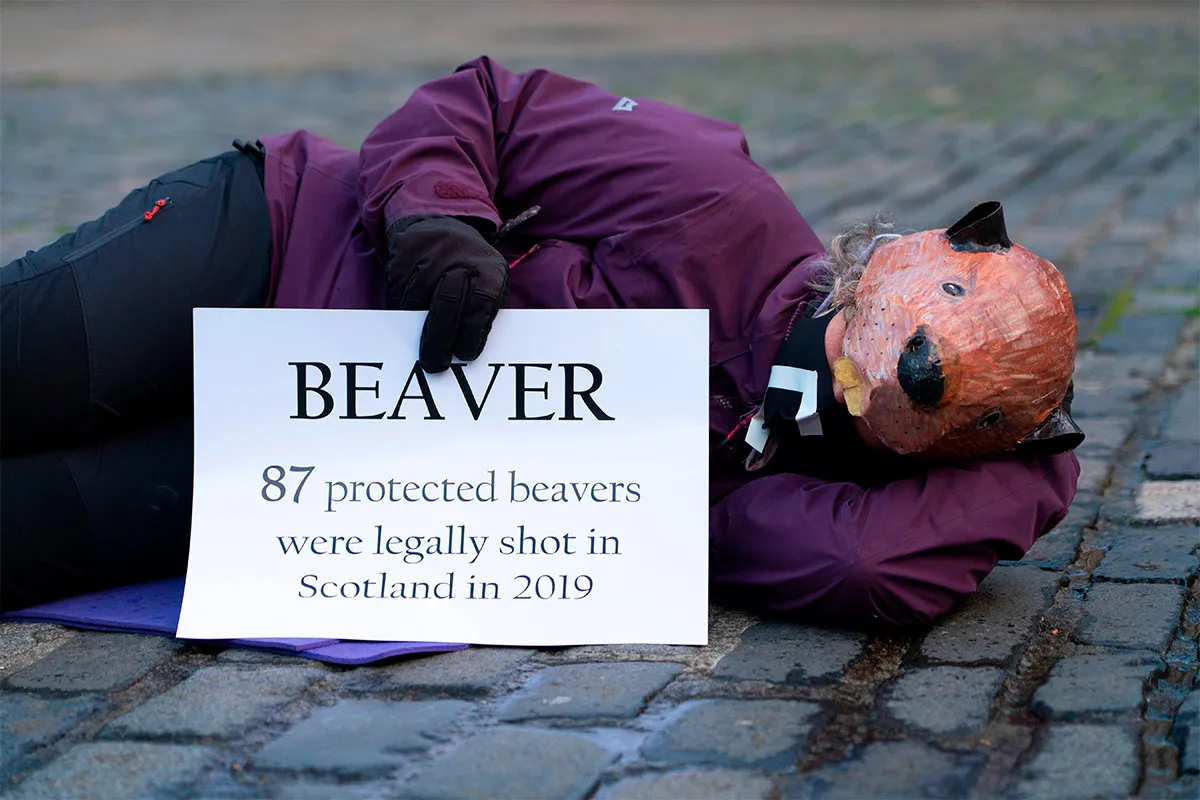In June 2021, rewilding charity Trees for Life brought a case against NatureScot, Scotland’s nature conservation agency, for allowing farmers to kill wild beavers. It argues that NatureScot is breaking the law by granting beaver control licences too liberally.
The judicial review is seen as a key test case for rewilding campaigners who want beavers to spread further across Scotland and are pushing for the reintroduction of predators such as lynx.
Steve Micklewright, chief executive of Trees for Life, says his organisation believes licences to kill beavers should only be issued as a last resort when all other options, including relocation, have been considered.
“We also believe that if lethal control licences are required, the number of beavers that can be shot under each licence should be stated, rather than left unlimited,” he adds.
But NatureScot says these control licences are needed in specific situations, such as when beavers pose a risk of serious damage to farmland or result in a public health and safety concern.
“We are confident that our approach to managing these impacts is robust and lawful and licences are only used if we are satisfied that there is no other solution,” says Robbie Kernahan, NatureScot’s director of sustainable growth, in the organisation’s statement on the review.
Read more about rewilding:
- Why rewilding success stories make us hopeful for the future
- Rewilding: Can it save our wildlife and temper climate change?
The first wild beavers were released in Scotland in 2009 as part of a controlled trial in Knapdale on the western coast. However, a far larger population of beavers has been established in Tayside following an unauthorised release some 20 years ago. Here, their impact on prime agricultural land has caused tensions with farmers.
Dr Helen Senn, head of conservation and science at the Royal Zoological Society of Scotland, one of the partners of the Knapdale beaver trial, notes that dam-building by beavers increases wetland habitat, benefitting a whole host of species.
“However, if this occurs near productive farmland, farmers may lose valuable crops or infrastructure,” she says.
The Scottish government has agreed to allow beavers to spread naturally across Scotland. From May 2019, it designated them a protected species, meaning land managers need to obtain a licence from NatureScot in order to kill them or destroy their dams or lodges.
NatureScot granted 40 of these control licences in 2019, with cull returns indicating that 87 beavers were killed, equal to a fifth of the country’s total population in 2017 when the last survey was done (the figures for 2020 have not yet been released).

The National Farmers Union (NFU) Scotland, which is supporting NatureScot to oppose the judicial review, defended the licence system, calling it “appropriate and proportionate”.
“To those impacted by beavers on their land, the licence system has been a valuable way of protecting their farm from economic and environmental damage,” says a NFU Scotland spokesperson.
Beavers and people can co-exist happily in some locations, they argue, but when they arrive in highly productive agricultural areas they can undermine river banks, damage protective flood banks and block farmland drainage.
But wildlife campaigners argue lethal licences are not necessary as there are other options. Louise Ramsay, from the family-run rewilding project at Bamff Estate in Perthshire, said she understands why certain farmers find beavers problematic but does not think any should be shot in the UK at the moment.
“There are very few beavers and there is an abundance of land to which they could be relocated from situations where they cannot be accommodated,” she says.
Some farmers also need to think more about the environmental impact of their farming, and consider whether there are actions they can take to reduce the negative impacts of beavers, she says.
Read more fromReality Check:
- Early risers and night owls: A neuroscientist explains who is happiest
- COVID lockdowns have made us forgetful. A psychologist explains why (and what you can do about it)
Dr Alan Law, a lecturer in ecology at the University of Stirling, says beavers have become important in the UK’s rewilding movement. He says the outcome of the judicial review could have an impact on the reintroduction of other species in Scotland, such as lynx.
“Nature’s at breaking point, if not broken already. Rewilding and reintroduction of species is absolutely essential to bring back animals that provide us with natural functions and services in the environment,” he says. “If the government loses the review, it will have to re-evaluate its approach to protected species, ensuring it explores all other options before allowing their killing.”
The ruling could take up to three months, with a decision from the judge expected by the end of August.
“It will be very interesting to find out what the outcomes are,” says Law. “But regardless, I’m hoping everyone can still move forward in an amicable way, and still recognise the benefits of the beavers.”
- Visit the BBC's Reality Check website at bit.ly/reality_check_ or follow them on Twitter@BBCRealityCheck
